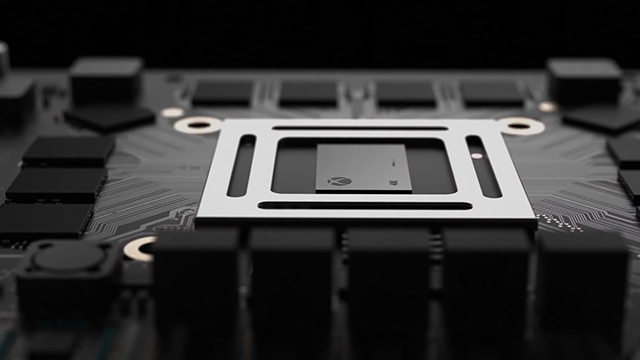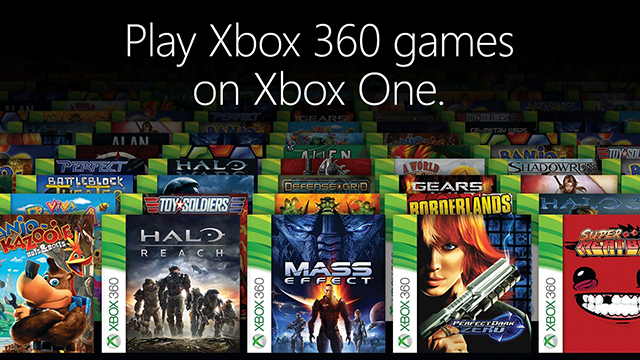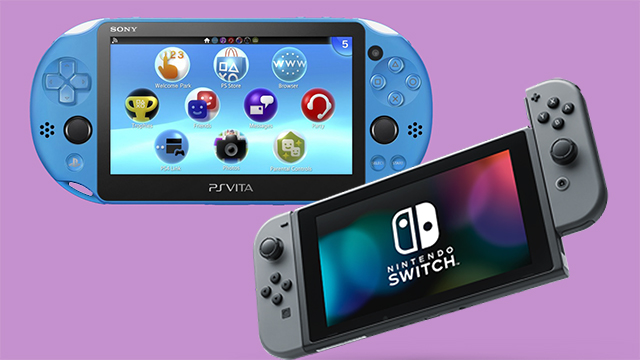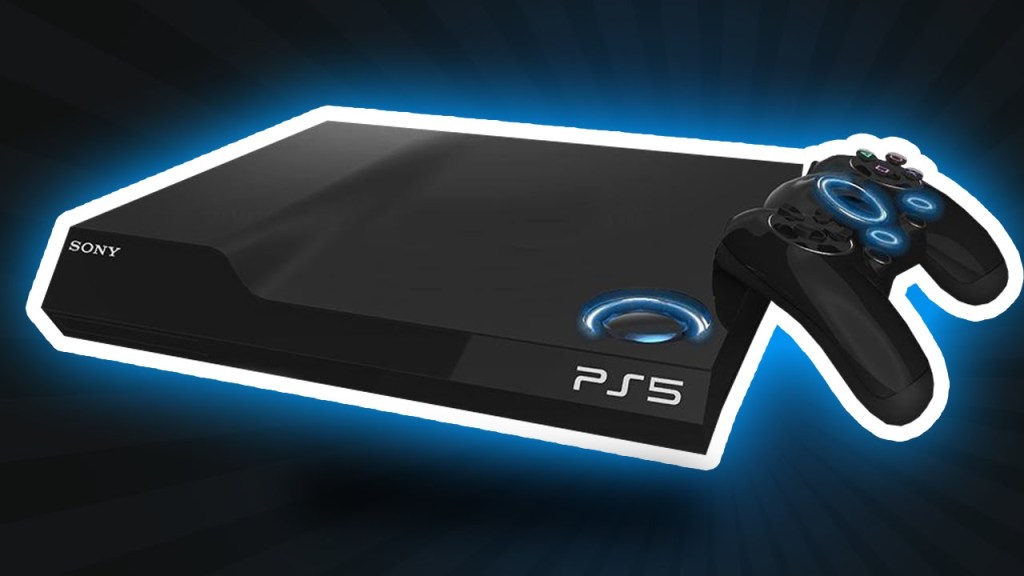You may have heard late last week that securities analyst Damian Thong, the one who successfully and correctly predicted the timing and arrival of the PlayStation 4 Pro and PlayStation 4 Slim, feels that Sony will release a “next-generation PlayStation” by the back-half of 2018. By traditional definitions of industry terms, the remarks imply not a slim PS4 Pro, not a third or fourth revision of Sony’s current-gen console, but a new device entirely. Next-gen means next-gen, and per Sony’s naming scheme that means PlayStation 5.
The remarks are mere speculation, and though strengthened by the analyst’s recent track record, GameSpot points out that such comments may not be tied to any specific or official sourcing. Still, there are a number of strategic reasons why a quicker-than-expected jump to PlayStation 5 may actually make sense, should Sony decide to go that route.
First and foremost, both of Sony’s competitors are upending the usual, unchanging generational lines that have been so consistently drawn since the 1980s regarding consoles and their lifespans. In Nintendo’s case, the Switch has swooped in prematurely and mercy-killed the loved but short-lived Wii U, shifting attention away from Nintendo’s shortcomings and promptly spurring a frenzy of Wii-level success, mainstream attention, and console demand. This unexpectedly erects a situation where Nintendo is technically one generation ahead of Sony and Microsoft (not in terms of hardware power, but certainly in terms of the general public’s understanding), while the PS4 and Xbox One have absolutely zero intention of ending generation eight anytime soon. Or at least, so we would assume.
 Scorpio looms, and Switch is already here. Sooner or later, action from Sony will be required.
Scorpio looms, and Switch is already here. Sooner or later, action from Sony will be required.
Meanwhile Microsoft, not seeking to pull a Switch (as Xbox One is, though lagging behind PS4, far from a flop), is instead heavily upgrading its current-gen device with Project Scorpio. “Refresh” doesn’t begin to describe what’s planned, as the device sports a hulking six teraflops of computing power and is designed from the ground-up for 4K gaming, surpassing the VR-centric PS4 Pro in both capability and raw specs, at least theoretically. The entire situation does admittedly put Sony in a pickle, not financially but certainly strategically. It doesn’t make a whole lot of sense to release yet another PS4 Pro-style refresh to out-do Scorpio. And yet with Nintendo cheating into generation nine early and Microsoft blurring generational lines, it doesn’t necessarily work to give PS4 a full seven or eight years either.
As such, I feel that PlayStation 5 in 2018 would in fact be a nice idea, but Sony would need to be careful with execution and be prepared for a non-traditional approach. Strategically, it has several advantages. Follow Nintendo into the next generation and re-establish the large, obvious performance gap between Switch and Sony hardware (currently clear with PS4 Pro, but maybe less-so with the base system). Additionally, the move would serve as a true one-upping of Microsoft’s intentions, as Phil Spencer and crew are clearly heavily invested in Scorpio, the Xbox One ecosystem, and on not leaving generation eight anytime soon. This was likely calculated under the assumption that Sony intends to mimic PS3’s lengthy lifespan with PS4, and as such a 2018 PS5 would very much pull the rug out from under Microsoft's intentions.
Of course, I’m not rooting for any of these actions in particular, and I’d prefer to see Microsoft secure as much of a foothold as it can simply because fierce competition is healthy for the industry. Regarding the non-traditional changes mentioned earlier, a PS5 in 2018 would need to adopt the following in order to not irk PS4 owners or rub gamers entirely the wrong way.
 Hopefully the standard from now on.
Hopefully the standard from now on.
#1. Full backward compatibility with PS4
No more requiring players to keep their bulky last-gen devices. I still have my PS3 hooked up, and play several of its games often. Having a PS3, PS4, and PS5 connected all at once sounds like a true nightmare. If PlayStation 5 is to arrive anytime short of 10 years after PS4, Sony needs to quit making excuses and assert backward compatibility as the new standard. Microsoft has become incredibly serious about it with Xbox One, so there’s little choice here.
#2. First party titles should be dual-released on PS4 and PS5, or at least on PS5 and PS4 Pro, for the first few years.
Sony should still intend to support PS4 for a full ten years, and the path to doing so should PlayStation 5 release in 2018 is simple: keep PS4 in the loop at least through 2020. From there, it’d simply be a matter of supporting the twilight years the same way Sony did with PS2 and, to a lesser extent, PS3. The process could even be gradual; first release first party games on both systems, then on PS5 and PS4 Pro only, then slowly and painlessly phase out the system altogether. Assuming the PS5 retains a PC-like architecture and aforementioned backward compatibility, the consoles won’t be terribly, vastly different from a development perspective anyway.
#3. Define, or at least acknowledge, a handheld strategy
Sony has stated it has no plans for a Vita successor, but with Nintendo Switch storming the market, things have changed. I don’t think a Vita successor is the answer, but it’s unlikely Sony can procure a true hybrid device in time for its next console launch, nevermind a theoretical 2018 launch, unless it has already been developing such a thing in secret (which, to be fair, there is some evidence of). Assuming a hybrid doesn’t come to fruition, Sony should either perfect the remote play experience on Vita to a level of seamlessness that is negligible, bring its entire game libraries to PlayStation Now from day one, or create some kind of new portable device designed specifically for playing its home console games on the go. If PS5 were to utilize cartridges then certainly there’s potential for a handheld that simply renders its 4K games at 720p, but at this point we’ve careened far too deep into speculation territory.
 Handheld gaming: it can't be ignored forever.
Handheld gaming: it can't be ignored forever.
Regardless of what Sony has planned, it’s clear the console landscape has received an unexpected kick in the pants in the past year, with no signs of the relative weirdness slowing down. Personally I’d be fine with PlayStation 4 continuing as planned for a solid six or seven years and culminating in the normal Sony style, but it’s difficult to say how the competition will evolve around it during that time. In the same way, were PS5 to come to fruition as described in this article I’d also be okay with it, as its release would provide a built-in, steady transition from one console to another that is not usually seen.
Regardless, above all the player experience remains about games, and should Sony decide to wring its current device for all its worth, I doubt anyone will complain as long as there are great games to go along with it until the very end. What are your thoughts on the situation? I’ve mused on the strangeness of the current console landscape before – you can check out my recent thoughts on the “big three” here.
[PlayStation 5 mockup image via: PlayStation VR US]







